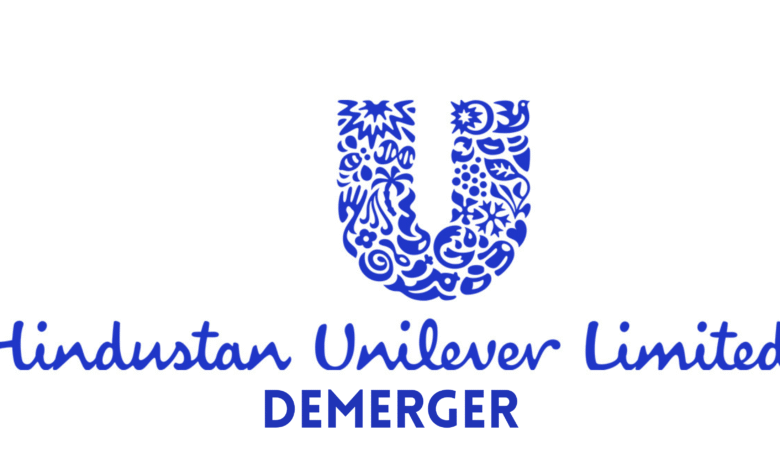Hindustan Unilever Demerger: What It Means for Investors & Consumers

Hindustan Unilever Limited (HUL), India’s largest FMCG giant, is undergoing a strategic demerger that could reshape the consumer goods landscape. This move follows parent company Unilever’s global restructuring and aims to sharpen HUL’s focus on high-growth segments.
Here’s a detailed breakdown of:
✅ Why HUL is demerging
✅ Which businesses are affected
✅ Impact on shareholders & consumers
✅ Long-term market implications
The Demerger Plan: Key Details
-
Effective Date: [Expected Q1 2024] (Pending regulatory approvals)
-
Segments Involved:
-
Home Care (Surf, Rin, Vim)
-
Beauty & Personal Care (Dove, Lux, Pond’s)
-
Foods & Refreshments (Brooke Bond, Kwality Wall’s)
-
-
New Structure:
-
HUL Core: Premium personal care & nutrition
-
Spin-off Entity: Mass-market home care & foods
-
Why Is HUL Demerging? 3 Strategic Reasons
. Sharper Category Focus
🔹 Premiumization: HUL will prioritize high-margin segments (serums, health foods)
🔹 Mass Market: Spin-off to handle price-sensitive categories
. Unilever’s Global “Compartmentalization” Strategy
🌍 Aligns with parent co’s plan to separate Beauty and Food divisions
. Regulatory & Tax Efficiency
📉 Simplify operations amid India’s new FMCG regulations
💰 Optimize tax structure for both entities
Impact on Shareholders
What Changes for Investors?
-
Share Allocation: 1:1 ratio expected (1 HUL share = 1 spin-off share)
-
Dividend Policy: Likely maintained for both entities
-
Valuation: Analysts predict 12-15% upside for HUL core
Stock Market Reaction
📈 Short-term: Volatility expected during transition
📊 Long-term: Both entities may outperform Nifty FMCG index
Consumer Impact: Will Prices Change?
🛒 No immediate price hikes (brands remain same)
🆕 Possible innovations:
-
HUL Core: More premium skincare/wellness products
-
Spin-off: Budget-friendly variants in detergents, tea
Competitive Landscape Shift
-
HUL Core vs Nestlé India (nutrition space)
-
Spin-off vs Dabur/ITC (mass-market FMCG)
What’s Next? Timeline & Challenges
🗓 2024: Regulatory approvals, shareholder voting
⚠ Risks:
-
Execution complexity
-
Brand cannibalization
-
Rural demand slowdown affecting spin-off


